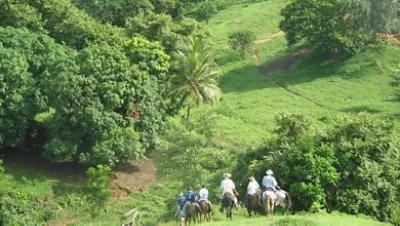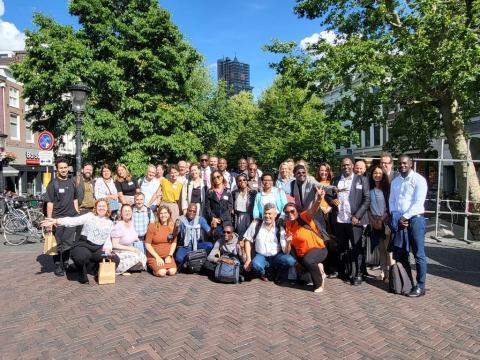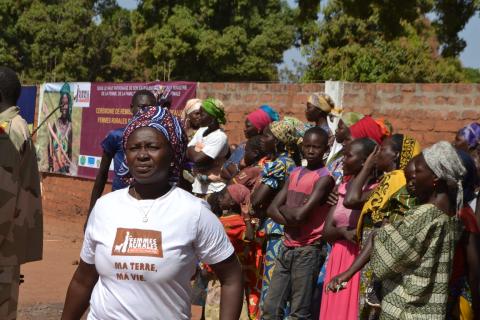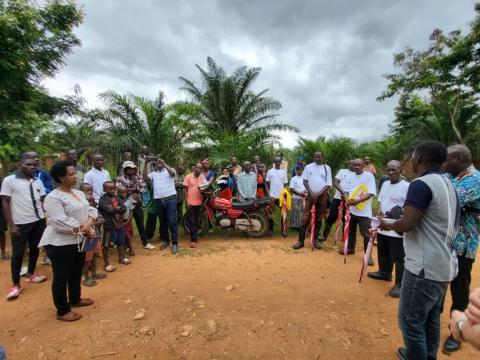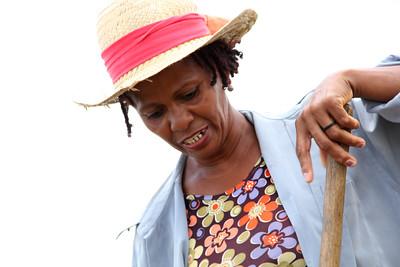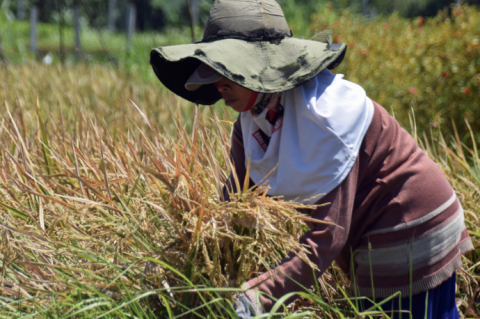Descubra historias ocultas y voces no escuchadas sobre asuntos de gobernanza de la tierra en el mundo. Aquí es donde la comunidad del Land Portal comparte actividades, experiencias, desafíos y éxitos.

Siga nuestra serie de blogs sobre Objetivos de Desarrollo Sostenible! !
Issues
Geographical focus
En vísperas de las próximas conversaciones internacionales sobre el clima, los agricultores de las regiones costeras de Bangladesh insisten en la importancia de contar con unos derechos sobre la tierra sólidos y bien documentados ante las múltiples catástrofes provocadas por el cambio climático que han afectado negativamente a sus vidas y medios de subsistencia.
Costa Rica es ampliamente reconocido por ser un líder mundial debido a sus logros ambientales, entre los cuales cabe destacar sus buenos resultados en la conservación de los bosques. Es el primer país tropical del mundo que ha revertido la deforestación.
Raíces de la agricultura cubana. Históricamente, hasta antes de la Revolución, el modelo y la práctica agrícola cubana eran el resultado de dos circunstancias particulares: la herencia colonial y la llegada del capital estadounidense. Ambas condiciones derivaron en formas típicas de explotación capitalista de la tierra.
The second LAND-at-scale (LAS) exchange took place from June 26th to June 28th, 2023. Sixty partners came together in Utrecht, the Netherlands to exchange lessons learned and explore common challenges. As of 2023, ten country projects are currently being implemented under the LAS program, namely Burkina Faso, Burundi, Chad, Colombia, Mali, Mozambique, the Palestinian Territories, Somalia, Rwanda and Uganda. All countries were represented and almost all implementing partners were present at the Exchange.
Challenges with regards to scaling is not unique to the land sector. Working in the context of agriculture for development, CGIAR and Wageningen University developed the Scaling Readiness approach. This approach response to the fact that the pressure to demonstrate fast and visible results and impact at scale, has sometimes resulted in unreasonable and unrealistic expectations, and in fact stimulated simplistic and non-sustainable scaling approaches.
Chad is at the verge of an emerging land tenure crisis. As observed in many countries in Africa, formal and customary tenure systems overlap. Customary tenure systems, that generally prevail in rural areas, differ from region to region, with each its own needs and practices. Land conflicts are abundant, caused by degradation and transformation of land surfaces caused by climate change, as well as land investments by domestic investors with disputed legitimacy.
Burundi has the world’s highest hunger score and around 45 percent of the population is affected by food insecurity. The country copes with increasing scarcity of land as a result of increasing population size, returnees and IDPs and climate change. With the majority of Burundians depending on agriculture for their food and livelihoods, land scarcity makes this reliance on agriculture precarious. This pressure on land causes elevated levels of land disputes with over 55% of all court cases being related to conflicts over land.
Scaling is at the heart of both the name as well as the strategy of LAND-at-scale. Scaling and scaling potential are key in the way the program was designed and is reflected in the three pillars chosen to realize the aim of the program. The first pillar is about scaling successful initiatives and projects; the second pillar focuses on land governance innovations with scaling potential; and the third pillar covers knowledge management, with a focus on gaining a deeper understanding on the conditions required to make scaling successful.
Este seminario web, el primero de la serie "Escala responsable", tuvo lugar el 28 de septiembre de 2023 bajo el título "Escala responsable de una administración de la tierra adaptada a sus fines: Equilibrio entre retos tecnológicos y de gobernanza". El seminario web reunió a algo más de 350 participantes y contó con panelistas que iban desde jóvenes profesionales a integrantes de ministerios. El seminario web fue organizado por un consorcio de organizaciones, entre ellas la Fundación Land Portal, la Agencia Holandesa de Empresa y Desarrollo (RVO) y Kadaster.
Aunque escasean por causa de los monocultivos, dos organizaciones han accedido a predios en los que desarrollan labores agroecológicas sostenibles; sin embargo, sus derechos están comprometidos: cuando el principal obstáculo no es la falta de seguridad jurídica, el hecho de ser mujer se vuelve ‘carta blanca’ para arrebatarles la tierra.
By Milya Samberu, Gender and Land Champion, WOLTS Project Tanzania


